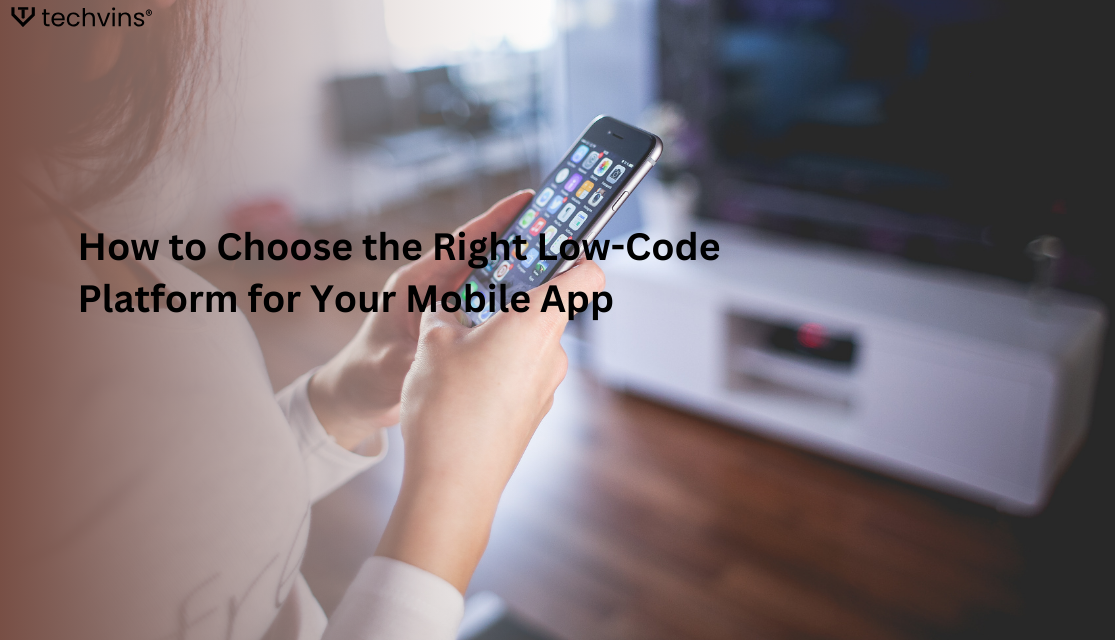What Blockchain Should You Use for Your Crypto Wallet Development?

Cryptocurrency wallets have become an essential tool in the modern world of digital finance. As the popularity of cryptocurrencies continues to rise, so does the need for secure and user-friendly wallets that enable people to manage their digital assets. For developers and businesses looking to create a crypto wallet, one of the most critical decisions to make is which blockchain to use.
In this article, we will explore the key factors to consider when selecting a blockchain for your crypto wallet development. We will discuss the various blockchain platforms available, compare their features, and help guide you through the process of choosing the best one for your project. Whether you're working with a crypto wallet development company or handling the development yourself, understanding blockchain options is essential for success in the fast-paced world of cryptocurrencies.
The Importance of Blockchain in Crypto Wallet Development
At the core of every crypto wallet is blockchain technology. Blockchain allows for secure, transparent, and decentralized transactions, and serves as the underlying structure for cryptocurrency. When you build a crypto wallet, you're essentially creating a gateway to interact with one or more blockchains, which is why choosing the right blockchain is so important.
The blockchain you select will affect the speed, security, scalability, and usability of your wallet. A well-chosen blockchain will ensure that users have a seamless and safe experience while managing their digital assets. On the other hand, an improper choice can lead to slow transaction times, high fees, or even potential security vulnerabilities.
Key Factors to Consider When Choosing a Blockchain
When deciding which blockchain to use for your crypto wallet, it's important to take several factors into account:
-
Security
-
Security is the most crucial aspect of any crypto wallet. A wallet must offer strong cryptographic protection for private keys and sensitive data. In addition, the blockchain itself must be secure and resistant to attacks such as double-spending or 51% attacks.
-
Consider blockchains with strong consensus mechanisms like Proof of Work (PoW) or Proof of Stake (PoS), which provide robust security for users' transactions.
-
Scalability
-
Scalability refers to a blockchain's ability to handle increasing transaction volumes without compromising speed or efficiency. Some blockchains are more scalable than others, and it’s important to ensure that your chosen blockchain can handle future growth.
-
For instance, Bitcoin and Ethereum are known to be less scalable than newer blockchains such as Binance Smart Chain or Solana, which offer faster and cheaper transaction processing.
-
Transaction Speed
-
The speed of transactions is essential for a crypto wallet's usability. Slow transaction times can frustrate users and affect their overall experience. Choose a blockchain that supports fast transaction processing and confirmation times.
-
Blockchain networks like Solana and Binance Smart Chain are known for their high-speed transactions, whereas Bitcoin and Ethereum may take longer to confirm transactions during periods of congestion.
-
Transaction Costs
-
Transaction fees are another critical factor to consider. Some blockchain networks charge higher fees than others, especially during periods of high network activity. It's important to choose a blockchain with low or predictable transaction costs to ensure that users don't face unexpected charges.
-
Ethereum, for example, has high transaction fees (gas fees), which can make it an expensive option for crypto wallet development. On the other hand, Binance Smart Chain offers much lower fees.
-
User Experience
-
The user experience is crucial for the adoption of your crypto wallet. A smooth and intuitive interface can make a big difference in the success of your app. The blockchain you choose will influence the wallet’s features, transaction speeds, and overall experience.
-
Blockchains with robust developer tools and a rich ecosystem of libraries and APIs, such as Ethereum, offer more flexibility and capabilities for building feature-rich wallets.
-
Smart Contract Support
-
Some blockchains, like Ethereum, are designed to support decentralized applications (dApps) and smart contracts. If your crypto wallet needs to integrate with decentralized finance (DeFi) protocols or other smart contracts, it's important to choose a blockchain with strong support for these features.
-
Smart contracts enable users to interact with decentralized applications directly from the wallet, providing added functionality and versatility.
-
Ecosystem and Community
-
A strong developer ecosystem and community support can be invaluable when developing a crypto wallet. Choosing a blockchain with an active community ensures that you have access to tools, resources, and expertise when needed.
-
Well-established blockchains like Bitcoin, Ethereum, and Binance Smart Chain have large communities of developers and users who contribute to ongoing improvements and troubleshooting.
-
Interoperability
-
Interoperability refers to the ability of a blockchain to communicate and work with other blockchains. If you want your wallet to support multiple cryptocurrencies and tokens, you'll need a blockchain that is compatible with various other networks.
-
Some newer blockchain platforms like Polkadot and Cosmos are designed specifically to facilitate interoperability, allowing assets to flow between different blockchains seamlessly.
-
Regulatory Compliance
-
Depending on the region or country in which your crypto wallet operates, regulatory compliance may be a concern. Some blockchains offer tools and protocols that help you meet regulatory requirements such as Know Your Customer (KYC) and Anti-Money Laundering (AML) guidelines.
-
It’s essential to choose a blockchain that aligns with the regulatory framework of the jurisdictions in which your wallet will be available.
-
Decentralization
-
Decentralization is one of the key advantages of blockchain technology, as it allows for more secure and trustless transactions. A blockchain's level of decentralization will impact the security and reliability of the wallet.
-
Bitcoin, Ethereum, and other well-established blockchains offer a high level of decentralization, whereas newer blockchains may have varying degrees of centralization or governance models.
Popular Blockchains for Crypto Wallet Development
Now that we've discussed the key factors to consider when choosing a blockchain, let's take a look at some of the most popular blockchains for crypto wallet development.
1. Bitcoin (BTC)
Bitcoin is the first and most widely recognized cryptocurrency. It operates on a Proof of Work (PoW) consensus mechanism and is known for its high level of decentralization. Bitcoin has a large and secure network but can be slower and more expensive for transactions due to high network congestion and high fees during peak times.
2. Ethereum (ETH)
Ethereum is the second-largest cryptocurrency by market cap and is known for its smart contract functionality. Ethereum supports decentralized applications (dApps) and has a large developer ecosystem, making it a popular choice for crypto wallet development.
3. Binance Smart Chain (BSC)
Binance Smart Chain is a high-performance blockchain that offers low transaction fees and fast transaction speeds. It is compatible with the Ethereum Virtual Machine (EVM) and is popular for DeFi applications. BSC has gained a significant user base and is widely used for decentralized applications.
4. Solana (SOL)
Solana is a high-speed blockchain that can process thousands of transactions per second (TPS). It uses a unique Proof of History (PoH) consensus mechanism to achieve fast transaction speeds while maintaining security. Solana is gaining traction due to its scalability and low fees.
5. Polkadot (DOT)
Polkadot is a multi-chain blockchain that allows for interoperability between different blockchains. It is designed to enable the transfer of assets and data between different networks, which is ideal for wallets that need to support multiple cryptocurrencies.
6. Cardano (ADA)
Cardano is a third-generation blockchain known for its focus on security, scalability, and sustainability. It uses a Proof of Stake (PoS) consensus mechanism and aims to provide a more energy-efficient alternative to Proof of Work blockchains like Bitcoin.
Working with a Crypto Wallet Development Company
If you’re not experienced in blockchain app development or lack the technical expertise to handle the complexities of crypto wallet development, you may want to consider working with a crypto wallet development company. These companies specialize in creating secure and reliable crypto wallet applications and can help you choose the best blockchain platform for your project.
A skilled development team will help you navigate the technical challenges of integrating blockchain networks into your wallet, ensuring that your wallet is secure, scalable, and user-friendly. Whether you’re building a mobile wallet, a web wallet, or a hardware wallet, a development company can guide you through every step of the process.
Conclusion
Choosing the right blockchain for your crypto wallet development is a critical decision that will impact the overall performance, security, and user experience of your app. By considering factors like security, scalability, transaction speed, and developer tools, you can select a blockchain that best suits your project’s needs.
Popular blockchains like Bitcoin, Ethereum, and Binance Smart Chain offer different advantages, and each blockchain has its own strengths and trade-offs. If you’re unsure about which blockchain to choose, working with a crypto wallet development company can help you make an informed decision and ensure that your wallet is built on a solid foundation.




